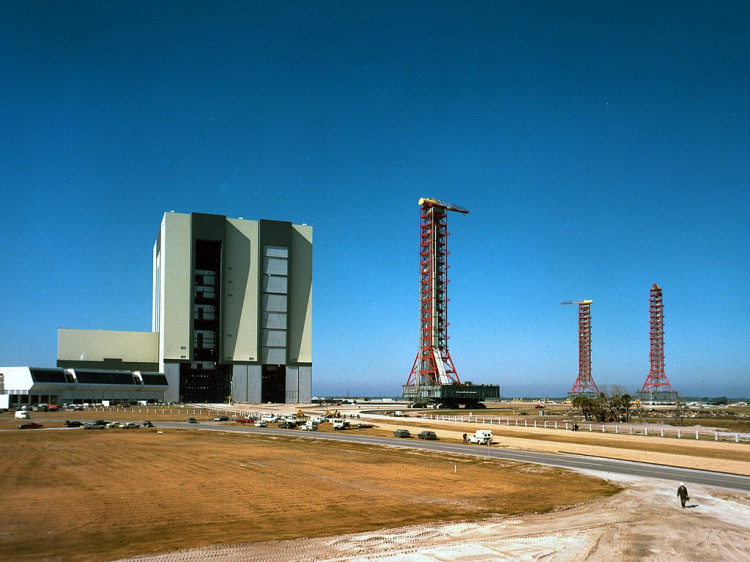In June 1995, less than a month after "Apollo 13" hit theaters, then-President Bill Clinton met with mission commander Jim Lovell to present one of the highest honors an astronaut can receive: the Congressional Space Medal of Honor.
Former Medal of Honor recipients Charles "Pete" Conrad and U.S. Sen. John Glenn (D-Ohio), as well as Tom Hanks, who portrayed Lovell in the hit film, Clinton noted that Americans now knew why Lovell was deserving of praise more than they had in the 25 years since the ill-fated Apollo 13 mission returned safely to Earth in 1970.
"While you may have lost the moon," Clinton said to Jim Lovell, "but you gained something perhaps far more important, the abiding respect and gratitude of the American people."
Lori Garver stood off to the side of the stage as the President draped the medal over Lovell's head. Garver, the executive director of the National Space Society (NSS), a nonprofit organization championing the creation of a spacefaring civilization, had not only been instrumental in arranging for Lovell to receive the medal but she had also helped save the event from being canceled the night before.
Garver, who later became NASA's deputy administrator, recalls the events of July 26, 1995 for the first time in her new book, "Escaping Gravity: My Quest to Transform NASA and Launch a New Space Age," which was released on Tuesday by Diversion Books (June 21).
By all accounts, Jim Lovell should have been among the first astronauts to be awarded the Congressional Space Medal of Honor in October 1978. Alan Shepard, the first American in space; John Glenn, the first American to orbit Earth; the late Virgil "Gus" Grissom, commander of the ill-fated Apollo 1 crew; Frank Borman, Lovell's commander on Apollo 8, the first mission to orbit the moon; Neil Armstrong, the first person to walk on the moon; and Conrad, commander of the first crew to live on board the United States' first space station, Skylab.
Lovell believed he was overlooked because of how NASA perceived Apollo 13 prior to the film's production.
"Jim Lovell expressed his disappointment during dinner that he had never received the Congressional Space Medal of Honor," wrote Garver, recounting an event that brought the real Apollo 13 astronauts together with the actors playing them before filming began."The comment was made in passing, while he was explaining to the table that at the time of Apollo 13, the mission was considered a failure and NASA had done its best to sweep it under the rug."
Hearing this, Hanks caught Garver's eye "and we both silently acknowledged the mention," Garver recalled.
Later that evening, Hanks approached Garver and told her that if she could arrange for the medal for Lovell, he would like to be present to see it presented. Garver quickly capitalized on Hanks' enthusiasm, convincing him that if the White House ceremony went ahead, he would speak at a Capitol Hill event in support of the International Space Station project.
"It was an opportunity [neither NASA nor the White House] could pass up," Garver wrote. "After months of coordinating logistics, the ceremony was scheduled."





